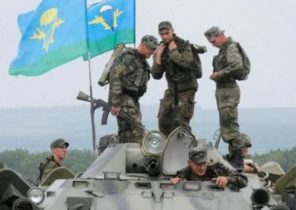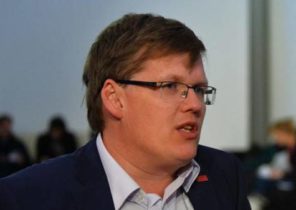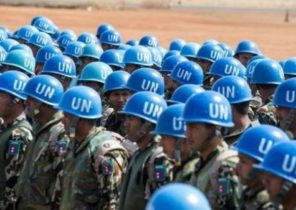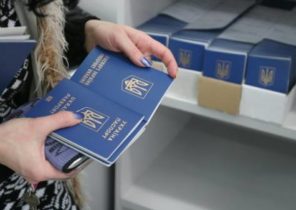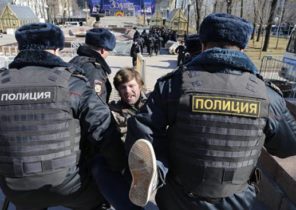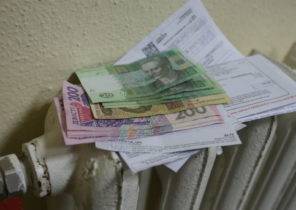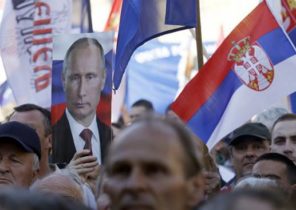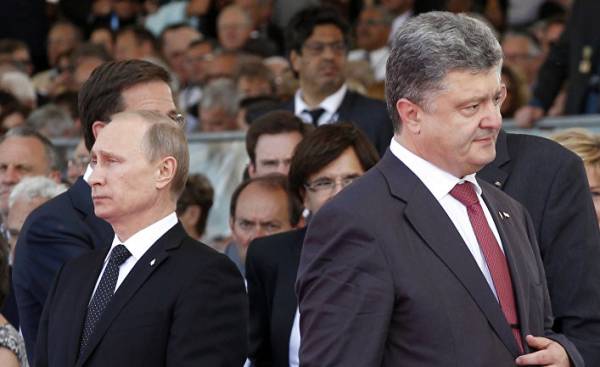
While the administration of the tramp struggling to find a footing, fighting between Ukrainian troops and Russian puppets once again broke out in Eastern Ukraine. More than 10 thousand people have been killed in this conflict, and the infrastructure of the region today lies in ruins. Both Russia and Ukraine remain bound by the terms of a prisoner in February 2015 agreement “Minsk-2”, which is a set of measures aimed at formally to pave the road to peace. However, two years after the signing of this Treaty has not provided the end of the war.
While critics attacked Minsk-2 over his unclear stance on Ukraine’s sovereignty in the occupied territories, the Treaty contains a number of provisions relating to the termination of the current conflict and the return of the Ukrainian border under the control of Kiev. But there are things that are not included in the Minsk-2. We are talking about the broader issues of geopolitical orientation of Ukraine. Therefore, in order to once and forever end this conflict, it is necessary to directly address those issues, especially the question of how Russia, Ukraine and the West will interact with each other. Ukraine most of all needed the respite to engage in critical economic and political reforms aimed at consolidating its young democracy and a complete break with her past — even if it would involve difficult compromises. That might look like such a realistic agreement.
First of all, we should say that any possibility of Ukraine joining the North Atlantic Treaty Organization (NATO) should be removed from the agenda. Although NATO at the summit in 2008 and has offered Ukraine membership in the future, the reality is that many NATO countries in any case will not support Ukraine’s membership in the Alliance, and he himself has denied Ukraine the opportunity to follow the path to membership in this organization. It is not difficult to understand why. As highlighted in the published in 2016, report, the Rand Corporation, Russia may occupy the Baltic States for three days, and given the overwhelming military power that Russia can aim at your backyard, it’s hard to imagine anything but a similar outcome in Ukraine. If we add to this Russia’s status as the world’s largest nuclear powers, it is almost impossible to imagine that the United States would bind itself to a Treaty under the military protection of Ukraine (the Europeans, of course, will be even less willing to do the same).
In addition, even in the Ukraine there is no common position on membership in NATO. Published last month a survey conducted by Gallup, show that Ukrainians have changed their attitude toward NATO after 2014, and the majority of residents of Ukraine is now considering NATO as a threat, not as protection. Moreover, the Kiev international Institute of sociology, conducting public opinion polls, found that a large majority of people both in the South and in the East of Ukraine will vote in a referendum against Ukraine’s membership in NATO, and this means that the pursuit of this goal could undermine the significant progress made by Ukraine in overcoming the pre-existing divisions along geographic lines.
Although many might criticize the failure of Kiev from the NATO membership and to call it peace, from the point of view of the Ukraine it would be a welcome demonstration of realpolitik. Russian President Vladimir Putin has repeatedly said that Russia’s annexation of Crimea was carried out, in particular, in order to deprive Ukraine of the possibility to join NATO, and many in the West for a long time underestimated the feeling of humiliation and fear that has been generated by the repeated expansion of NATO and inclusion in its membership former members of the Soviet bloc. While assuming that Ukraine’s accession to NATO in any case remains so unrealistic, the rejection of membership in the Alliance will not be costly for Ukraine, because it will allow her term to strengthen its positions on other, more fundamental issues for the future.
This brings us to the second key issue in any deal to end the current serious conflict in Ukraine: it is about the relations of Kiev with the European Union. If you compare the situation with 2013, when the country was deeply divided on this issue, today the majority of Ukrainians support the possible accession to the European Union and, in addition, the country has already signed the Association Agreement with the European Union.
Therefore, in exchange for a rejection of membership in NATO Russia, for its part, must openly recognize the right of Ukraine to seek membership in the European Union, and to establish any non-military political or economic relations with Brussels, which she can choose instead. Like the pill it would be difficult to swallow. The Kremlin wants Ukraine to join the Eurasian economic Union, a subordinate of Russia free trade agreement, designed to combine the located at the border of Russia, the former Soviet republics. But in the absence of radical shifts in the Ukrainian policy to count on such an option is not necessary. Ukraine is forced to accept the reality, with regard to NATO membership, but the time has come to admit — she wants it or not — that Ukraine was determined to continue movement in the direction of Europe in political and economic terms.
Fortunately for Russia, on the horizon looms no EU membership for Ukraine. While optimistic Ukrainian leaders say that the way to Ukraine’s membership in the European Union will take five or ten years, the European Commission President Jean-Claude Juncker has ruled out such an option, at least in the next 20-25 years. From this point of view, Russia has little to lose, while agreeing that Ukraine has the right to join the EU. And, in the end, perhaps after Putin’s departure from the scene in Russia and Ukraine can make a choice in favor of restoring their relationship.
The third important issue that must be considered in any transaction, refers to the political structure of Ukraine. Russia consistently pushes the idea of “federalization” of Ukraine, which Moscow identifies as granting broad powers to regions of Ukraine, including the possibility to establish an independent economic and political relations with other countries. In practice, this will allow Russia to have a significant impact on Eastern Ukraine. Not to say that Kiev will never go. However, Ukraine makes sense to decentralize and transfer certain powers to the regions — and this idea is supported even by the President of Petro Poroshenko. For example, the regions could get greater control over taxes and spending, and the ability to directly elect regional heads. In addition, it makes sense to give the regions control over many social issues such as education, language and culture. Many European countries have chosen a similar model. For example, France select regional leaders, whereas in Wales, part of the United Kingdom, the official languages are both English and Welsh. In Germany the responsibility for education mainly falls to Federal land.
From the point of view of Moscow reasonable autonomy will allow Putin to say that he successfully “defended” the rights of those living in Ukraine is ethnic Russian or Russian-oriented Ukrainians, most of whom live in the South and East. From the point of view of Kiev, are causing controversy issues as the status of the Russian language or policy in the field of (historical) memory must be addressed at the local level, as it should be. This approach will allow us to form a common identity for the multinational composition of Ukraine.
When all the various geopolitical issues are resolved, it will be possible to engage the Russian-Ukrainian economic relations. Moscow and Ukraine are in a state of mutual trade war, which affects both sides. Ultimately, nothing prevents Ukraine have a free trade agreement with the European Union, and Russia — with the consent of both parties. Although currently there are some technical barriers to free trade between Russia and Ukraine — mainly Moscow is concerned that Ukraine could become a back door for companies in the European Union, the goods which otherwise would be subject to duties, — these issues can be solved.
Last but not least is the issue of the Crimea, and there is less total space for compromise. Moscow invaded the Peninsula in the Black sea in March 2014, annexed it and now declares that it considers Crimea part of Russia and is not going to return it to Ukraine. Ukrainian officials also reject any deal in relation to the Crimea on the type of world in exchange for land. For this reason, apparently, will need to just postpone the negotiations on the Crimea at a later date. To call this option is not elegant, but for the first time, this will probably be enough. In the end, if you ever happen true reconciliation, there will be found some formula for joint sovereignty and, possibly, some form of payment from Russia to Ukraine for the Peninsula.
I should say that there are many reasons why the Russian-Ukrainian deal on the basis of the listed parameters will not take place. First of all, Putin can arrange only obedient Ukraine, completely returned to the Russian orbit — it will fit his neo-imperialist remark in a conversation with George W. Bush that “Ukraine is not even a state”. In addition, after three years of war, the appetites of the Ukrainian party regarding any transaction on the basis of a compromise or concessions may fade away, especially by not willing to compromise nationalist groups. To overcome the resistance on each side the West should offer them a carrot. Russia can be persuaded by proposals for termination of existing economic sanctions, while Ukraine should be offered billions of dollars and expressed in dollars “mini-Marshall plan” for the restoration of Donbass.
It should also be recognized that the expectation of Ukraine’s readiness to compromise — or even to conduct negotiations with Russia is unjust. Ultimately, Russia has illegally seized the Crimea, and she is undoubtedly the main instigator of violence in the Donbas. In an ideal world, Moscow would return Crimea, stop support to their separatist puppets and willingly would have paid the Kyiv compensation for their actions, without getting anything in return. And, of course, it would be nice if Putin would have bought all the inhabitants of our planet cappuccino and would give a puppy. However, this probably will not happen, and Kiev, in the end, will be forced to choose between endless conflict and imperfect but realistic solution possible to complete work on the creation of a modern, democratic and European state.
As once said Otto von Bismarck, “politics is the art of the possible, the attainable… the art of choosing not the best option, and the one that follows it”. If Moscow and Kiev will keep in mind the aphorism of Bismarck, the Russian-Ukrainian deal, in the end, it may be possible.
Josh Cohen is a former employee of the U.S. Agency for international development (U. S. Agency for International Development); he participated in the development of projects of economic reforms in the former Soviet Union.
